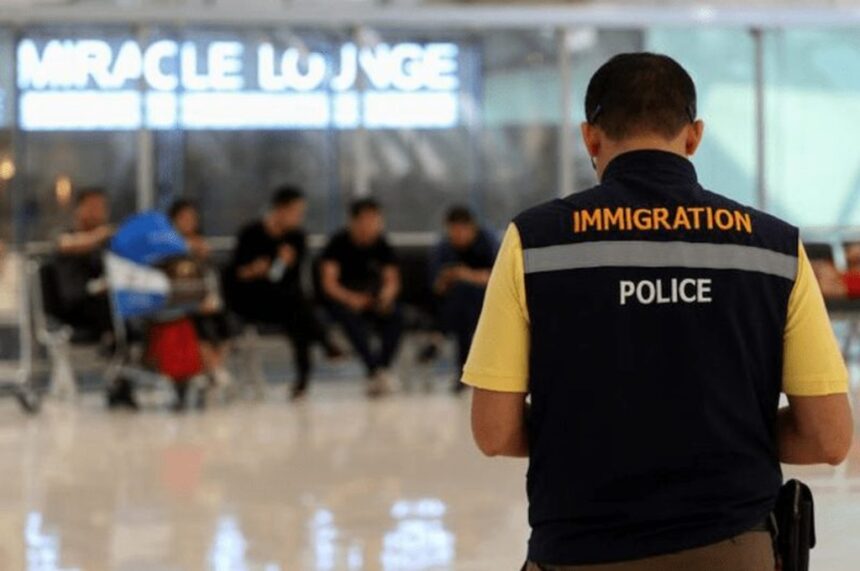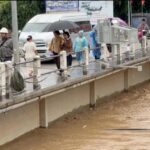BANGKOK— Thai authorities have cancelled close to 10,000 student visas after finding widespread misuse of the scheme. The Immigration Bureau, working with the Ministry of Higher Education, Science, Research and Innovation (MHESI), toughened the rules to stop foreign nationals from using student visas to work illegally in the country.
The crackdown, which started on 14 May 2025, follows growing concerns that these abuses are hurting both Thailand’s education system and its key tourism sector.
The Non-Immigrant ED Visa, meant for overseas students, has attracted reports of foreigners signing up for short-term courses simply to stay and work. Investigations by the Immigration Bureau and MHESI have found that many non-degree courses, especially at small or lesser-known institutions in smaller provinces, have acted as cover for illegal work.
Many of these programmes have little academic value and often help people avoid strict work permit laws, letting them take up jobs in construction, tourism and even some illegal trades.
How Student Visas are Abused
Student visa misuse has become a networked problem, brought about by collusion between some schools, brokers and foreign applicants. Thai social media pages like CSI LA and “Ru Tan Jeen” have highlighted cases in places such as Lamphun, where student visas have been renewed for as little as 10,000 baht.
Some schemes organized transport and job placements nationwide, organized under the guise of education. Claims suggest a few universities and state offices have looked the other way or have even been involved in the abuse.
Most offenders are foreign nationals from China and some African countries. There are cases of Chinese technicians working construction jobs while registered for basic language classes.
Some African nationals have been caught running businesses or doing unauthorized work while holding student visas. Immigration officers say these cases reveal weak checks on non-degree courses, which have made it easier for some to exploit the system.
Many applicants pay low fees to join programmes at institutes with few lessons or standards. The paperwork gets them a student visa, but most never attend class. They use their legal stay to work in roles like tour guiding or manual work, sidestepping Thailand’s labour laws, which only allow academic internships.
Impact on Genuine Students and Thailand’s Image
Widespread abuse makes things harder for real international students, whose numbers in Thailand have reached about 40,000. Institutions face extra strain and scrutiny, and the quality of their courses is affected. Honest students now face more paperwork and suspicion as a result of the crackdown on dodgy cases.
There are also economic worries. Bad press, especially involving Chinese tourists, makes officials nervous, since China is a major source of visitors for Thailand. Adith Chairattananon, honorary secretary-general of the Association of Thai Travel Agents, has warned that negative attention on rule-breaking visa-holders could put off Chinese tourists, hurting the fragile post-pandemic tourism sector.
Paisarn Suethanuwong, from the Professional Tourist Guides Association of Thailand, has drawn attention to illegal workers, including fake tour guides who take business from locals.
New Safeguards and Government Action
To address the problem, MHESI and the Immigration Bureau have introduced stricter rules. Since April 2025, educational providers must now give full course details, lesson times, class size, and regular updates on students to MHESI.
They must also monitor attendance and report monthly on student progress. If a programme does not meet standards, it can lose its right to accept foreign students, and the institute may lose its accreditation.
A new national database lets officials check student enrolment against visa records in real time. This change, announced by Higher Education Minister Sudawan Wangsuphakijkosol, aims to block fake students from slipping through the net.
Suspect cases get flagged for further checks, and a new agreement will formalize this information-sharing between agencies. The impact has been swift. Nearly 10,000 student visas are now cancelled, mostly linked to subpar short courses.
Colleges like Lamphun Buddhist College and three other universities with heavy Chinese funding have had to submit full lists of foreign students, while any institution found involved faces severe punishment.
Recent Arrests and Crackdowns
There have been several arrests involving Chinese and African nationals found working illegally while holding student visas. These incidents, uncovered by police raids and reports from the public, highlight both the scale of the problem and the challenge of policing it across the country.
Somchai Morakotsriwan, head of the Department of Employment, reminded everyone that working on a student visa is illegal unless special permission is given. Offenders face fines, deportation and a ban on returning, with penalties for overstay reaching up to 20,000 baht.
Thailand hopes these new measures will not only stop abuse but also promote honest study and tourism. The reforms focus on better checks, clear records and punishment for those involved in fraud. Still, there are hurdles, such as detecting corruption and making sure inspections are tough everywhere, not just in hotspots.
As Thailand continues to welcome international students and visitors, success will depend on cooperation among MHESI, immigration officials and schools. For now, the message is direct: abuse of student visas will not be tolerated. Local and foreign students now face a more robust system, built to keep education and work permits separate and fair.














